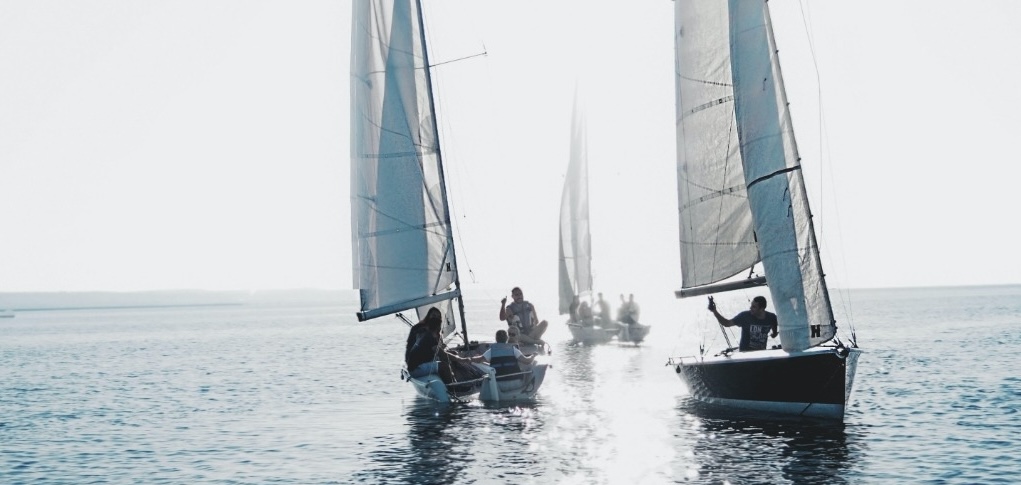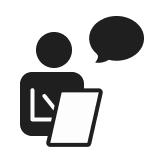SailZoo Blog
VHF/SRC certificate - Here's everything you need to know
A VHF radio is much more than just a radio. It is an essential piece of equipment for every sailor, allowing communication between other ships and coastal stations. In this article we have gathered a lot of knowledge about VHF radios, VHF/SRC certificates and all the questions this could raise.
What is a VHF radio?
A VHF radio is a critical tool for communication in the event of an emergency. In an emergency, a VHF radio can be used to call for help and provide vital information to emergency responders. It is important to know how to properly use a VHF radio, the etiquette involved when communicating over a VHF radio and the different channels and their use with the correct emergency and calling frequencies.
Among other things, you can use a VHF radio for the following:
- Make emergency calls on Channel 16 - and come to the aid of others in distress if you make an emergency call on the channel.
- Call a port to find out where there is space before entering.
- Establish contact with Lyngby Radio, which can help you get in touch with a doctor, provide the latest weather reports or give advice and guidance in stressful situations.
VHF/SRC certificate is required to operate a VHF radio
Having a VHF/SRC certificate is an important part of being prepared for emergencies at sea. An SRC - Short Range Certificate (also known as a VHF certificate) is required by law to operate a VHF radio on a boat.
To get the certificate, you'll need to take a course covering the basic principles of VHF radio operation, safety procedures and emergency procedures. Most courses will also provide you with guidance on how to use the specific functions of the VHF radio and a practical test to ensure you have the necessary knowledge and skills to operate a VHF radio.
Again, it is a requirement that you have a VHF/SRC certificate before you can turn on the VHF radio on your boat. However, there are a few exceptions to when you can record emergency calls without a certificate, such as if your skipper takes ill. Therefore, SejlSikkert has created a guide on how to make an emergency call - without any prior knowledge of how to use a VHF radio, which is recommended to be placed next to the VHF radio.
How to get a VHF/SRC certificate
You can get a VHF/SRC license in Denmark by taking a course offered by various sailing schools. The course typically covers the following topics:
- Basic principles of VHF radio operation: This includes understanding the different types of VHF radios, the range and limitations of VHF communication and the correct procedures for using a VHF radio.
- Security procedures: Information on how to properly use a VHF radio in emergency situations, and the correct procedures for making emergency calls and communicating with other boats and with the Danish Coast Guard or other rescue services.
- Radio procedures and protocols: The course will cover the specific procedures and protocols to follow when communicating over a VHF radio, including the proper use of radio etiquette, the different channels and their uses, and the procedures for making and receiving calls.
- Legal requirements: This will cover the international laws and regulations that apply to the use of VHF radios, including the requirements to hold a VHF/SRC certificate and the penalties for non-compliance.
- Practical trainingmost courses will include some form of hands-on training, including practical exercises and simulations, to allow students to practice using a VHF radio and become familiar with the different functionalities.
The course is usually held over a weekend or a couple of evenings and can be taken both physically or online at the various sailing schools. It costs around DKK 1,000-1,500 for the course and a test fee of DKK 514 to the Danish Maritime Authority.
Get a callsign for your ship
After you have passed the test and received your VHF/SRC certificate with flying colors, you must obtain a call sign certificate for your vessel from the Danish Maritime Authority. When the certificate is issued, your vessel is assigned an identification number so that it is possible for others to obtain information about the boat in an emergency. This number is called MMSI, which stands for Maritime Mobile Service Identity, and in addition to providing information about the boat, it can also be used as a kind of phone number so you can make and receive calls from other boats from your VHF radio.
Frequently asked questions about VHF/SRC certificates and the use of VHF radios
Do I need a VHF/SRC certificate before I can use a VHF radio?
Yes, it is required by law to have a VHF/SRC certificate to use a VHF radio on a boat. However, in emergency situations, such as emergencies, you are allowed to make an emergency call without a certificate. Therefore, it may make sense to familiarize yourself with how to make an emergency call via a VHF radio if you are a guest on a ship with a VHF radio, even if you do not have a VHF/SRC certificate.
Is a radio safer than a phone?
Yes, is the short answer. If we're going to get into the why, it's very much about internet and phone signal. A VHF radio has a better range than a normal phone, which is why you'll be able to make emergency calls when you're at sea - even in places where there's no signal on your phone. In addition, a VHF radio is designed with safety at sea in mind, which is why there are often a lot of safety features associated with it that you don't get by using a normal phone.
The phone is certainly better than nothing when it comes to safety at sea, but compared to the VHF radio, it loses the competition.
How old do you have to be to get a VHF/SRC license in Denmark?
You must be at least 16 years old to be issued a VHF/SRC license in Denmark.
How long is my VHF/SRC certificate valid?
A VHF/SRC certificate has no expiration date and therefore does not need to be renewed. Once you have passed the test and received the certificate, you can use your VHF radio for the rest of your life.
How long does it take to get a VHF/SRC certificate?
A typical VHF/SRC course is held over a weekend or on one or more weekday evenings. It is possible to take the course both physically and online in several locations, depending on who offers it.
What does a VHF/SRC certificate cost?
The cost of a VHF/SRC certificate course in Denmark is around DKK 1,000-1,500. In addition, there is a test fee of DKK 514 to be paid to the Danish Maritime Authority.
Can I use my VHF/SRC license abroad?
Yes, you can. The rules for using radios on ships are international, which means that your VHF/SRC certificate is also valid outside Danish waters. That's why it's called a Short Range Certificate.
Can I install a VHF radio on my boat without a VHF/SRC certificate?
You don't need a specific certificate to install a VHF radio in your boat, but it is important to ensure that the installation is done correctly and that the radio is properly connected and configured. However, a certificate is required to turn on and operate the radio on your boat - except in emergencies.
What is the difference between a VHF certificate and an SRC certificate?
It's the same thing. You are actually issued a Short Range Certificate (SRC) when you take a VHF course. However, the certificate allows you to operate a VHF radio, which is why the term VHF certificate is more widely used than SRC certificate.
By the way, calling it an SRC certificate is a double confection, as in Danish/English it's called Short Range Certificate-certifikat, so it should really just be called SRC in Danish.
Written by Mads SailZoo day 10. January 2023

Sign up for newsletter
Stay tuned for new sailing articles, sailing industry news and early access to new features.
Also see








.png/)


.png/)




.png/)

.jpg/)

